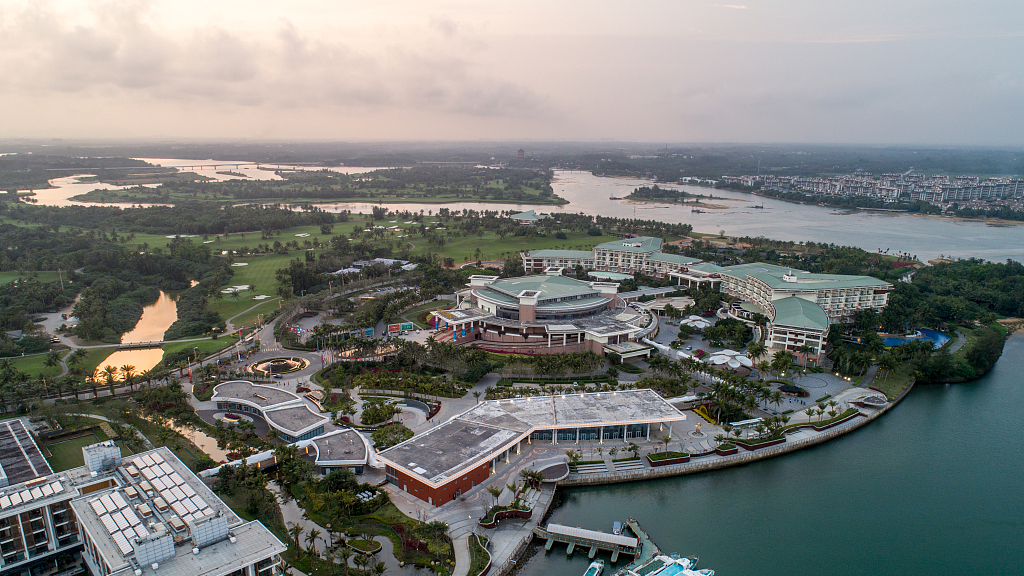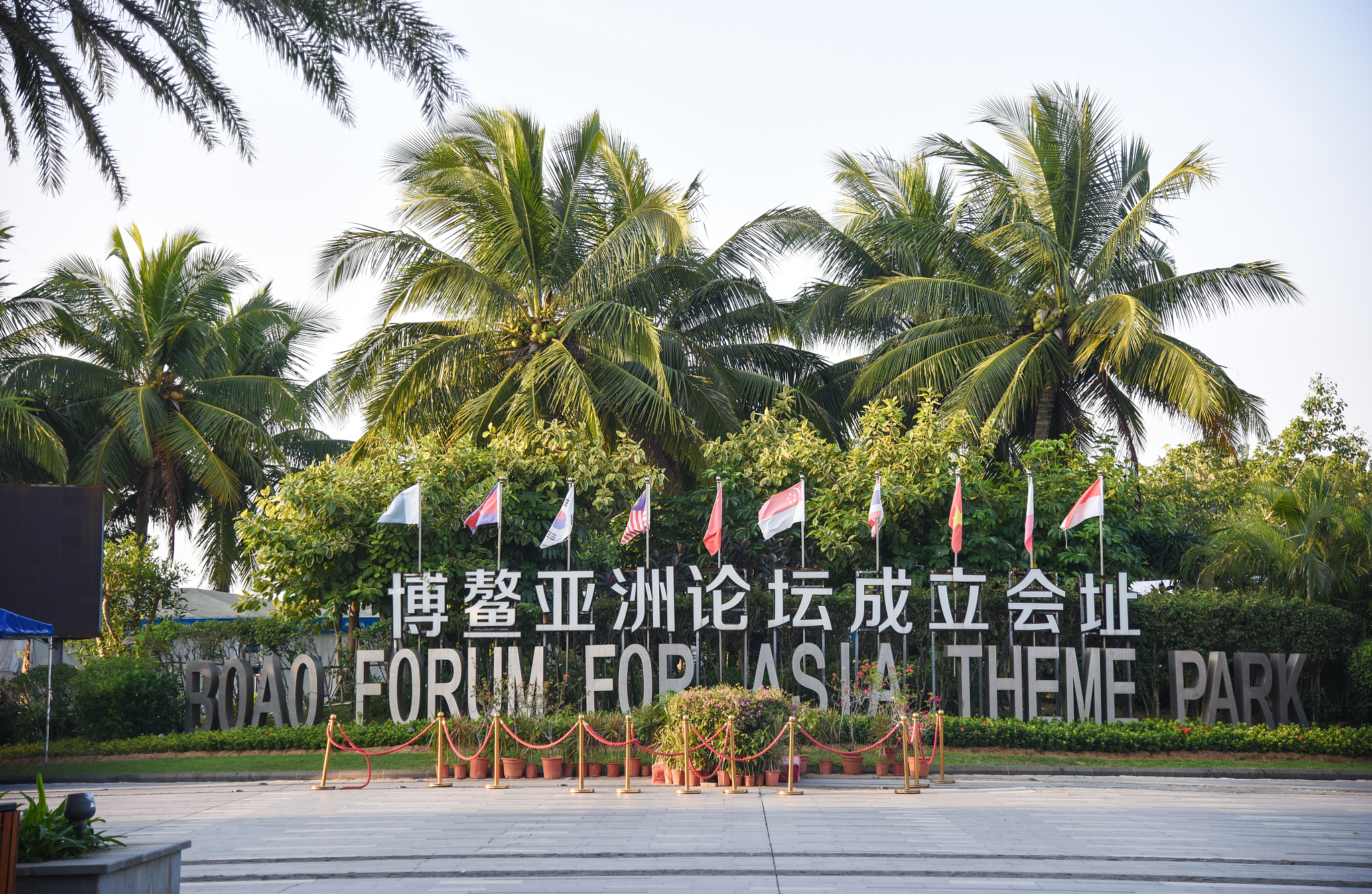
A view of Boao, Hainan Province, China. /CFP
A view of Boao, Hainan Province, China. /CFP
Editor's Notes: Matteo Giovannini is a finance professional at the Industrial and Commercial Bank of China in Beijing and a member of the China Task Force at the Italian Ministry of Economic Development. The article reflects the author's views, and not necessarily those of CGTN.
International conference and gatherings have been historically arranged to create useful platforms not only for sharing perspectives and knowledge but also to find concrete solutions to contemporary problems that afflict the world.
Founded at the beginning of the 21st century, the Boao Forum for Asia (BFA) is universally known as the "Asian Davos" and is a non-governmental and non-profit international organization based in Hainan Province that is focused on promoting a stronger economic integration in the world's most dynamic region.
This year's edition, that celebrates the 20th anniversary under the theme of "A World in Change: Join Hands to Strengthen Global Governance and Advance Belt and Road Initiative (BRI) Cooperation," is largely seen as a golden opportunity to rebuild confidence among countries in the delicate post-COVID-19 economic transition.
Probably the most relevant aspect resulting from the outbreak of COVID-19 pandemic has been a dramatic acceleration in the release of technological innovations such as smart working, big data, smart cities, artificial intelligence, e-commerce and digital payments, pushed by the incomparable entrepreneurial spirit that animates the whole Asia Pacific region. The success of this vibrant ecosystem could not have been possible without the perfect combination of risk-taking propensity, persistence, and internal locus of control of young local entrepreneurs and the long-term strategic vision of the respective national governments.
In this context, China has played a pivotal role in the region due to the undeniable state of advancement of its technological ecosystem resulting from a mix of a centralized set of policies, the vast amount of big data in the hands of few high-tech companies, and the degree of penetration and adoption of smartphones among the population.
In addition, the rapid digitalization that has resulted from the pandemic has pushed China to place renewed focus on the BRI as a facilitator of digital and technological innovation, the so-called Digital Silk Road. Deemed the "digital side" of the Belt and Road Initiative and a 2.0 version of the traditional Economic Belt and Maritime Silk Road it has had the merit to maintain connectivity among people and businesses located in different parts of the world without requiring any kind of human interaction.

BFA Theme Park, December 4, 2019. /CFP
BFA Theme Park, December 4, 2019. /CFP
The theme conveyed by this year's Boao Forum represents in these circumstances a clear message of acknowledgement of a changing economic, political and social landscape where it is required an act of courage from each stakeholder in order to increase the level of cooperation removing the remaining barriers that still divide countries.
The pandemic has in some ways created a favorable environment for the development of China's Digital Silk Road due to the desperate need of developing nations to upgrade their ICT systems for contact tracing through big data and for the prevention of future pandemic waves. Furthermore, COVID-19 has boosted the original Belt and Road Initiative model turning it into something much bigger that easily goes beyond any physical space and crosses borders expanding as far as to Africa and Latin America.
However, it should also be underlined that persisting network barriers and technological sovereignty between nations, aimed at protecting each country's respective interests, are still present and represent a serious bottleneck in terms of further global technological integration.
This aspect is definitely the case of major economies that still maintain a compartmentalized vision of the world while it is a secondary aspect for emerging countries that see in a higher level of global cooperation and integration the key to achieve economic recovery, future growth and digital transition.
The pandemic has displayed how the world is fragile as a result of increasing trade protectionism and unilateralism as well as of the lack of initiative from the World Trade Organization (WTO) in the revision of global trade rules. This situation has led to an inward approach of countries and to a more regionally-focused type of globalization where it is the cooperation among regions that impact on global governance and not the other way around.
The Asia Pacific region has demonstrated in this difficult time to be a model in terms of multilateralism through the achievement of historical agreements such as the Regional Comprehensive Economic Partnership (RCEP), signed in November of last year, It brings together for the first time the economies of China, Japan and South Korea.

Fountain Square of the BFA International Convention Center, March 25, 2019. /CFP
Fountain Square of the BFA International Convention Center, March 25, 2019. /CFP
China's ability to expand and elevate the physical connectivity project with the rest of the Eurasia mega continent to a digitalized version cannot just be attributed to the rising role of the digital economic or the lack of global leadership from incumbent superpowers. It is mostly the result of China's long-term industrial policy of technological development and the ability to empirically demonstrate how to recover from a serious pandemic through the rolling out of innovations.
In 2013, Chinese President Xi Jinping attended the Boao Forum and declared that China would have accelerated the level of interconnectivity with neighboring countries strengthening regional economic integration, before announcing the launch of the BRI few months later.
This year the same international stage is going to receive the spotlight and this time to stress that the significance of President Xi's message is still alive, it is only changed the way of execution due to a different world context where we live now.
It is thus in the interest of all countries, well beyond the integrated Asian community that accounts for more than half of the world economy last year, to recognize that in today's world the benefits of a more open, collaborative and multilateral world outweigh any form of division or self-interest.
In this regard, the 2021 Boao Forum for Asia could not happen at a better time.
(If you want to contribute and have specific expertise, please contact us at opinions@cgtn.com.)

